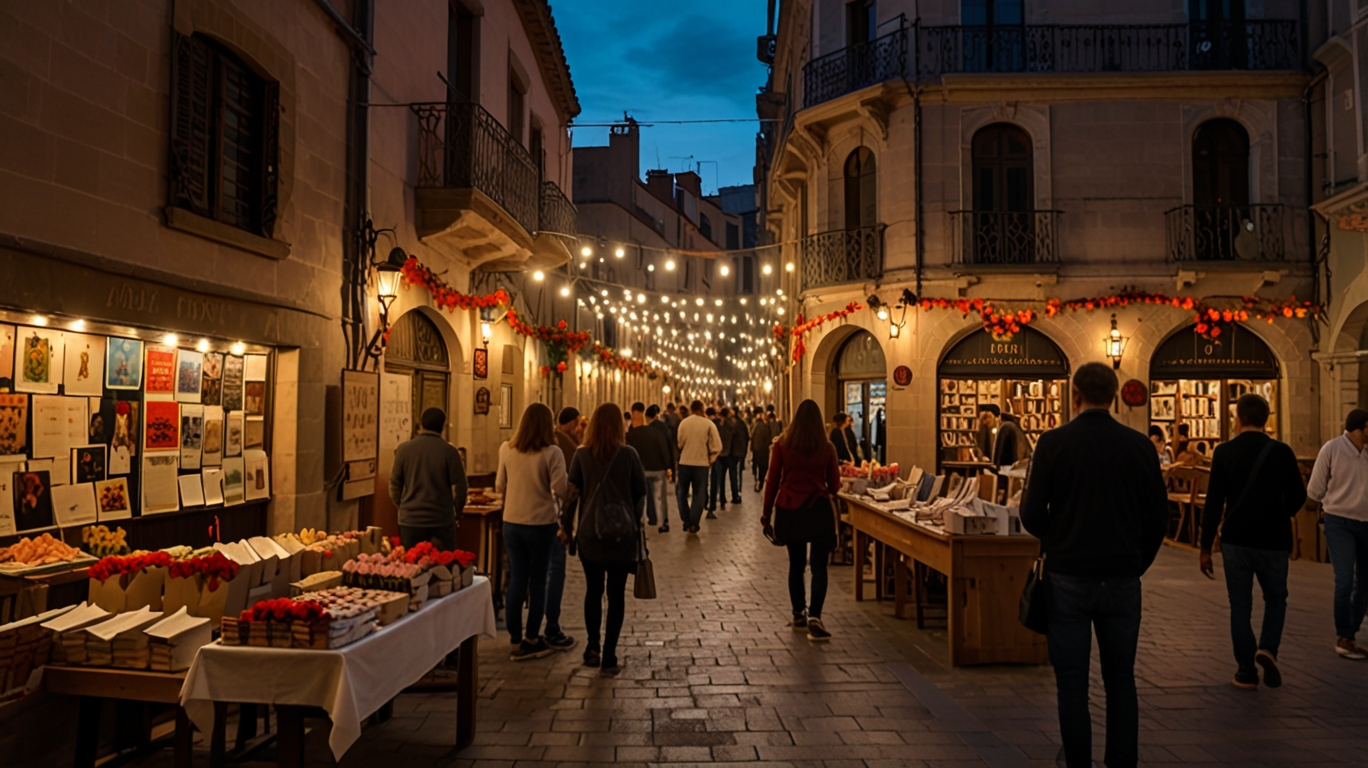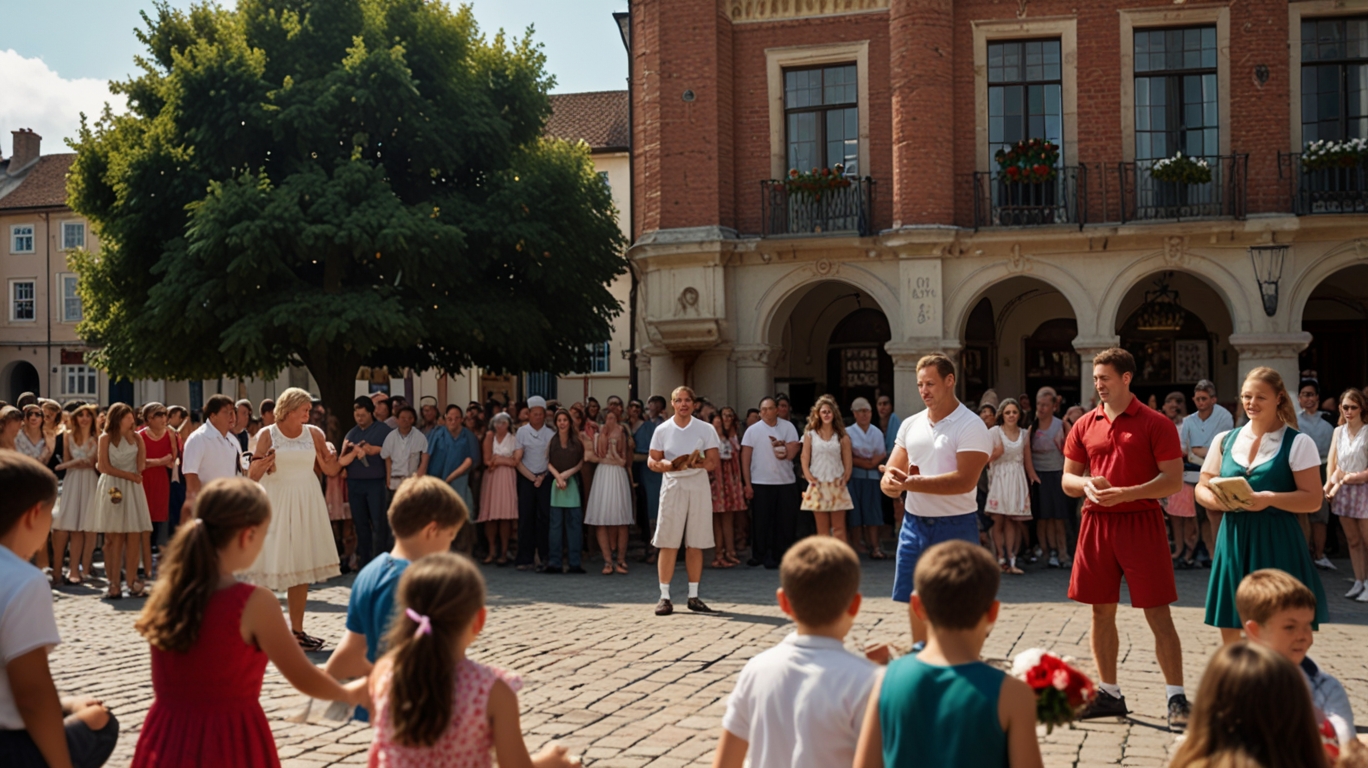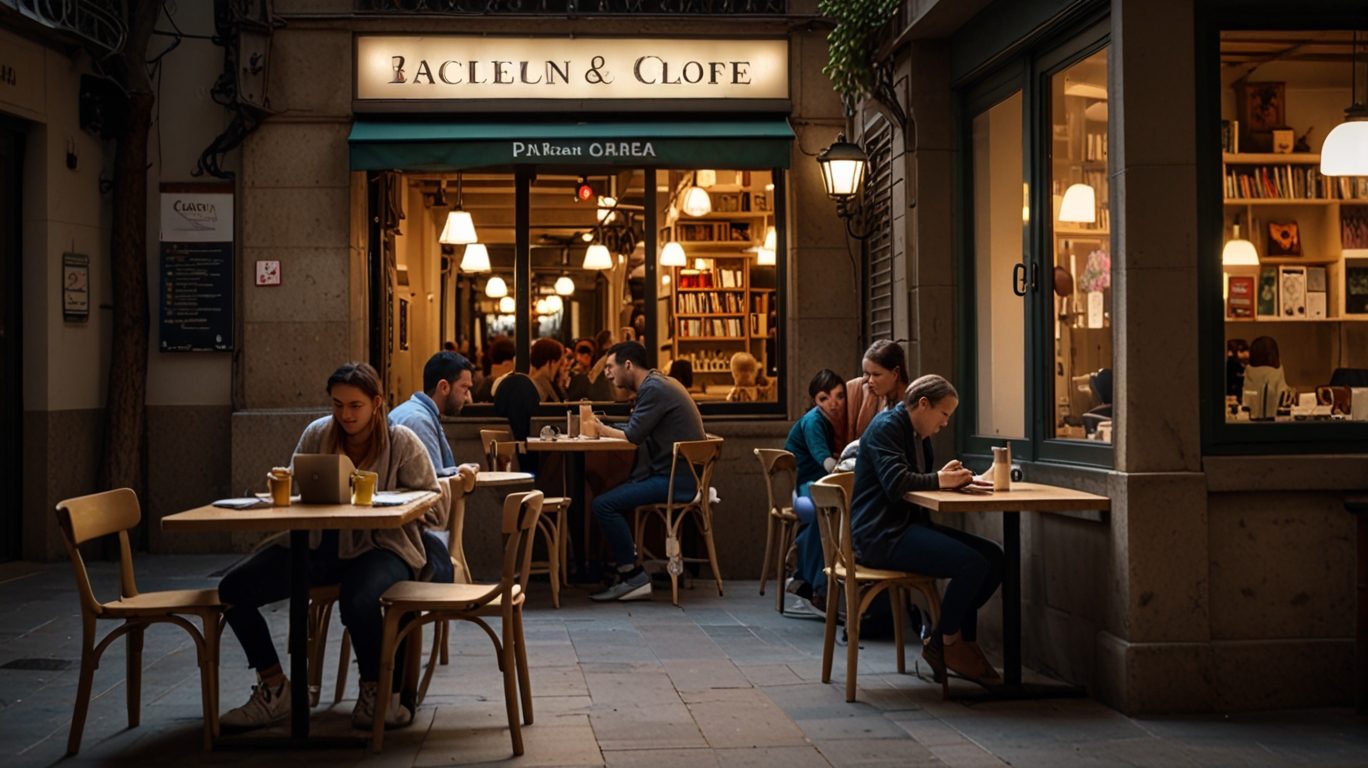Celebrating Love Through Literature: Why Dia de San Jorge Matters


Dia de San Jorge, or Saint George’s Day, celebrated every year on April 23 in Catalonia, is a festival unlike any other because it unites myth, history, and culture into one vibrant occasion that transforms entire cities into places of joy, learning, and love. Its roots come from the medieval tale of Saint George, a knight who bravely fought and slew a dragon to rescue a princess. According to legend, from the blood of the fallen beast grew a red rose, which George presented to the princess as a symbol of victory, devotion, and eternal love. This story, passed down over centuries, became more than just a myth—it became a cultural tradition where roses were exchanged as tokens of affection. However, the holiday evolved even further in the early 20th century when booksellers in Catalonia began promoting the exchange of books, linking the day to the anniversaries of two of the world’s greatest writers, William Shakespeare and Miguel de Cervantes, who both died on April 23, 1616. The addition of literature turned Dia de San Jorge into a festival of both love and intellect. Today, Barcelona and other Catalan cities fill their streets with countless stalls selling roses in every shade and books in every genre. Couples, friends, families, and even strangers come together to celebrate, making this day not just about romance but about community, shared stories, and the belief that love and literature enrich human life in equally powerful ways.
The Cultural Significance of Roses and Books

The exchange of roses and books on Dia de San Jorge is a symbolic ritual that carries deep meaning, blending together two of humanity’s greatest treasures: love and knowledge. Roses, with their rich colors and delicate fragrance, represent passion, admiration, and the beauty of human connection. They are fleeting yet powerful reminders of affection, fragile but cherished. Books, on the other hand, stand for permanence, for wisdom passed down through generations, for the imagination and creativity that allow humans to connect across time and culture. When roses and books are given together, they create a symbolic harmony between heart and mind, between emotion and intellect. Traditionally, men gifted roses to women, while women gifted books in return, but modern celebrations have made the practice more flexible—anyone may gift either roses or books, making the holiday inclusive and reflective of evolving values. What makes this tradition particularly profound is the personal nature of the exchange: a carefully chosen book reveals thoughtfulness and attention to another person’s interests, while a rose speaks to affection in its purest form. On Dia de San Jorge, the streets of Barcelona burst into life with this dual symbolism, creating a living metaphor of how love flourishes when nourished by both emotional tenderness and intellectual companionship. The act of giving, then, becomes not merely ceremonial but transformative, reminding participants that relationships thrive when rooted in both passion and understanding.
Dia de San Jorge and Its Global Influence

Although Dia de San Jorge is deeply tied to Catalan identity, its impact has transcended borders, spreading its influence across the globe. The recognition of April 23 as World Book Day by UNESCO in 1995 was directly inspired by this Catalan celebration, cementing its role as a global symbol of literature’s importance. This date also honors the legacy of William Shakespeare and Miguel de Cervantes, whose deaths on April 23, 1616, marked a turning point in world literature. Since then, countries around the world have embraced the day as an opportunity to celebrate reading and intellectual culture. Cities across Europe, the Americas, and Asia host book fairs, author meet-and-greets, literary discussions, and cultural festivals that echo the spirit of Dia de San Jorge. In Argentina, for example, World Book Day is a moment to reflect on national writers, while in the Philippines, schools organize public readings. What began in Catalonia as the exchange of roses and books has become a global movement that celebrates the universal importance of storytelling. Yet, despite its international reach, the Catalan version remains unique for its blending of romance and literature, reminding visitors that culture is not only something to be celebrated globally but also deeply rooted in local traditions. Dia de San Jorge, therefore, serves as a bridge between Catalonia and the rest of the world, a reminder that love and literature are values that cross all boundaries.
A Celebration Beyond Romance

While Dia de San Jorge is often described as Catalonia’s version of Valentine’s Day, its true spirit goes far beyond the realm of romantic love, embracing all forms of human connection. On April 23, families stroll together through streets lined with book and flower stalls, children receive their very first books, and friends exchange meaningful stories as tokens of appreciation. Schools organize events where students learn about the legend of Saint George, participate in storytelling workshops, and perform plays that bring the myth to life. Libraries open their doors for free activities, encouraging children and adults alike to engage with literature in new ways. Elderly couples revisit old favorites, while young readers discover new authors, making the holiday one that spans generations. What makes Dia de San Jorge extraordinary is its inclusivity—whether one is single, married, young, old, or somewhere in between, the festival welcomes all to share in its joy. The rose is not reserved only for lovers but can be given to a mother, a sibling, a teacher, or even a friend, while books become gifts of gratitude, respect, and intellectual curiosity. In this way, Dia de San Jorge strengthens community bonds, turning a day of personal affection into a day of collective celebration, where love is not narrowly defined but expressed in all its diverse forms.
Why Dia de San Jorge Matters Today

In today’s world of constant digital distractions, where messages are typed and sent in seconds and much of human interaction occurs online, the traditions of Dia de San Jorge feel more important than ever. The exchange of a physical book forces us to pause and think about the recipient’s tastes and passions, making it one of the most personal gifts one can give. Unlike a fleeting digital message, a book carries permanence; it can be revisited, reread, and cherished for years to come. Similarly, the rose—timeless and universally understood—remains a powerful symbol of affection, tenderness, and beauty. Together, these gifts create a moment of intentionality in relationships, pulling people away from the fast pace of modern life to focus on gestures that truly matter. The holiday also highlights the enduring importance of literature in shaping culture, empathy, and imagination. Books invite us to step into other lives, other histories, and other dreams, reminding us that love is not only about intimacy between individuals but also about the connections that stories create across humanity. In a time when cultures risk losing unique traditions under the weight of globalization, Dia de San Jorge stands as an example of resilience, proving that festivals can evolve while still holding true to their roots. By emphasizing both emotional intimacy and intellectual exchange, this holiday reminds us that the deepest relationships are built not only on passion but also on shared ideas, stories, and a willingness to learn together. That is why Dia de San Jorge matters today: it reaffirms the timeless truth that love and literature together can enrich lives in ways no modern technology can replace.
RELATED POSTS
How to Celebrate Dia de San Jorge Anywhere in the World
Día de San Jorge, also known as St. George’s Day, is a cultural and religious holiday that has deep roots in European tradition, most notably in Catalonia, Spain, and other regions where St. George is considered a patron saint. The date, April 23rd, holds significance...
Books and Roses: The Story of Dia de San Jorge in Catalonia
Dia de San Jorge, or Saint George’s Day, celebrated on April 23rd in Catalonia, is deeply rooted in medieval legend and regional identity. The holiday honors Saint George (Sant Jordi in Catalan), a Roman soldier and Christian martyr who, according to legend, slew a...

